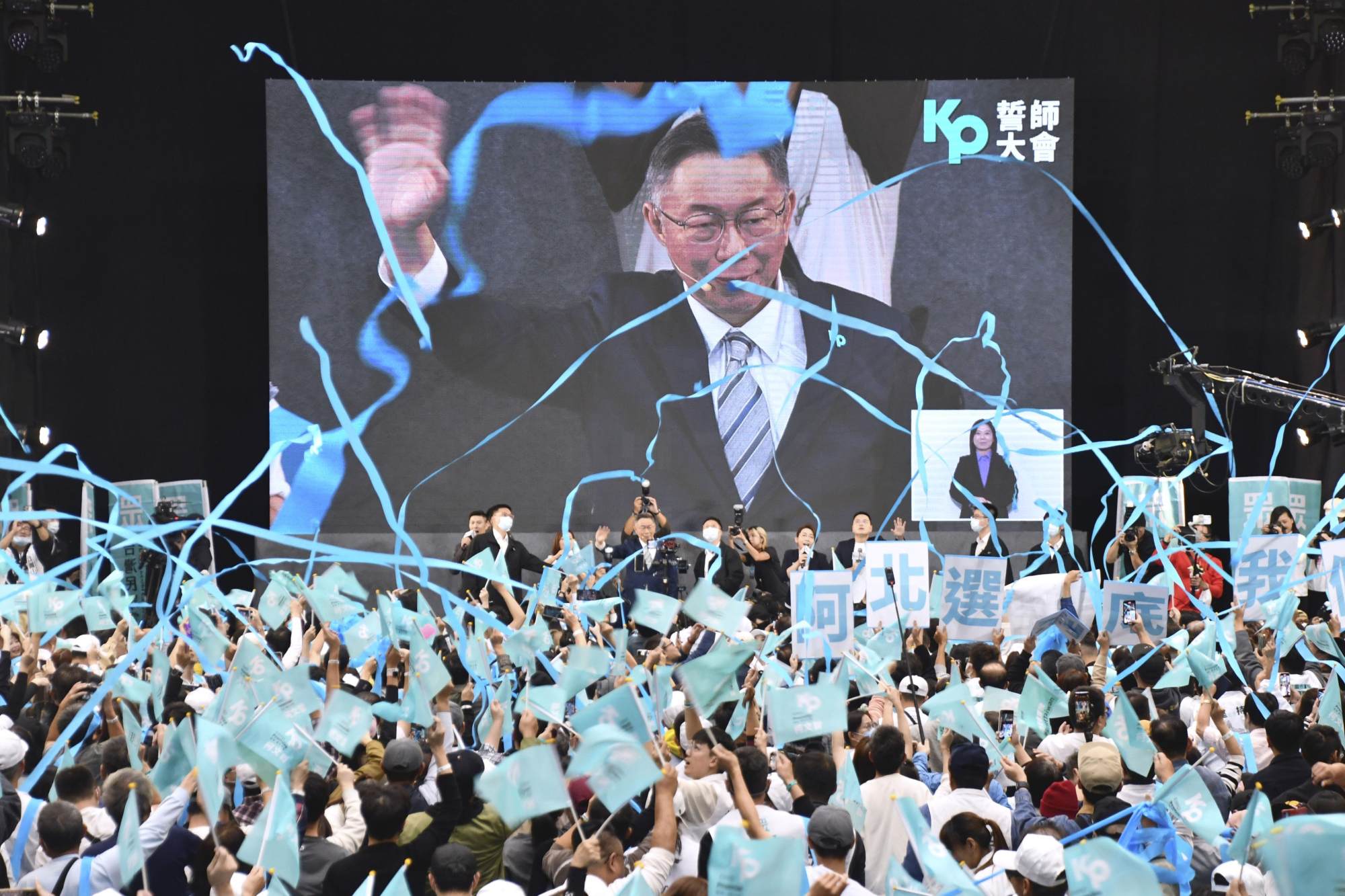The Taiwan People’s Party’s Ko Wen-je has registered his run for president, marking an end of the two main opposition parties’ attempt to form a joint ticket for January’s presidential election, and giving the ruling Democratic Progressive Party an easier path to victory.
Ko has chosen TPP legislator Wu Hsin-Ying as his running mate, on a ticket that does not include Kuomintang, the largest opposition party. He arrived at the registration booth minutes after 11am on Friday, hours before the official deadline for candidates to register.
Speaking to the media outside the registration office, Ko said the ruling DPP was “further away from the people and away from progressive values”.
Do you have questions about the biggest topics and trends from around the world? Get the answers with SCMP Knowledge, our new platform of curated content with explainers, FAQs, analyses and infographics brought to you by our award-winning team.
On the failed attempt to form a joint ticket with KMT, Ko said that “if the interests of parties and individuals are counted in the cooperation, the power of the chosen pair would be much weaker”.
The two parties had been in talks since October in an attempt to form a joint “blue-white” ticket – named after their respective party colours in a bid to improve their chances against the DPP.
Polls suggested that a candidate backed by both the Kuomintang and Taiwan People’s Party was the best chance of defeating the DDP’s candidate, Vice-President William Lai Ching-te, but a final round of talks between the two mainland-friendly parties on Thursday failed to resolve a dispute over how to select the candidate who will head the ticket.

Another four-year term for the independence-leaning DPP is likely to further unsettle Beijing, which regards Lai and his running mate Hsiao Bi-khim as separatists.
KMT’s candidate Hou Yu-ih’s running mate was announced at a party meeting on Friday morning, ahead of his formal registration, which he has already confirmed he will complete before the deadline.
Hou will be joined on the ticket by fellow KMT member and former legislator Jaw Shaw-kong, CEO and chairman of Broadcasting Corporation of China, who also hosts a political programme on another TV station.
KMT chairman Eric Li-luan Chu told the party meeting that he and Hou had “suffered humiliation” in the negotiations with the TPP “but couldn’t get back sincerity, and stood firm on integrity but couldn’t get real cooperation”. Chu also called on the whole party to support Hou’s candidacy.
The three opposition candidates spent hours locked in last-ditch talks on Thursday, which former KMT president Ma Ying-jeou attended as a witness.
Taiwanese opposition stay deadlocked over joint ticket as deadline looms
Last Wednesday they agreed to choose the lead candidate based on an analysis of opinion polls, but talks broke down on Saturday over a dispute on how that analysis should be conducted.
On Sunday Ko, vowed to “continue to fight to the end in his capacity as the TPP presidential candidate” and visited Gou, who is currently trailing the others in the polls. In a Facebook post on Thursday he said he had given Gou a “formal invitation” to “carefully consider integrating the opposition parties” without providing details.
Lai, who has been the front runner since he won the party’s nomination in April, has promised to continue the friendly policies that President Tsai Ing-wen has adopted towards the US, in which Hsiao played a major role as the de facto ambassador to Washington.
The US, in common with most countries, does not officially recognise Taiwan as an independent state, but opposes a forcible change in the status quo and is legally bound to help the island defend itself.
But victory for the DPP will do nothing to improve relations with Beijing, which regards Taiwan as a breakaway province that must be reunited with the mainland – by force if necessary.
Cross-strait relations began to deteriorate in 2016 after Tsai was elected president and refused to accept the 1992 consensus, an informal agreement between the two sides that there is only one China, although the two sides may disagree what that means.
Taiwan’s presidential election will be held on January 13 along with the legislative elections.
More from South China Morning Post:
- Mainland China urged to be ‘realistic’ and open communications with Taiwan’s ruling Democratic Progressive Party
- Taiwan’s presidential front runner William Lai picks de facto envoy to US as running mate
For the latest news from the South China Morning Post download our mobile app. Copyright 2023.





